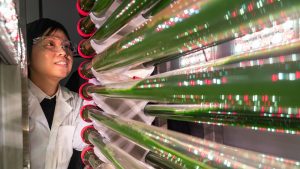
Feb. 2, 2026
Lab-grown algae removes microplastics from water
Professor Susie Dai has used genetic engineering to create a new kind of algae that grows in wastewater and can turn microplastics into biomass that is easy to collect and remove.

Nov. 4, 2025
Mizzou researchers pioneer ultrasound technology to measure blood viscosity
The breakthrough invention could help introduce viscosity as a new vital sign of human health.
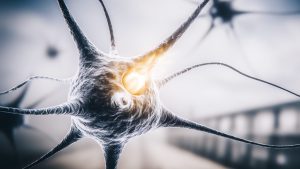
Oct. 27, 2025
Mizzou researchers identify a new rare genetic disease
Discovery could help improve diagnosis and treatment of unexplained movement disorders.

Oct. 2, 2025
Researcher awarded nearly $3 million to study how the brain repairs itself after a stroke
Mizzou Engineering professor Shinghua Ding is undertaking new research funded by a prestigious National Institutes of Health grant.
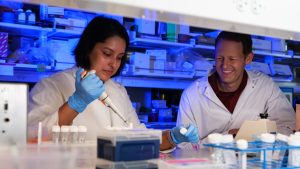
Sep. 29, 2025
Healing backs without screws or metal implants
With NIH funding, University of Missouri researchers are pioneering biological alternatives that could someday help the body heal itself.
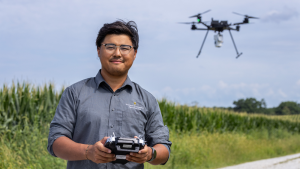
Sep. 26, 2025
Drones can more efficiently measure the health of corn plants, study finds
Mizzou researchers are getting a drone’s-eye view of corn stalks to help farmers better manage their crops through precision agriculture.
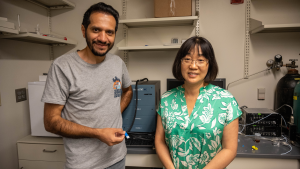
Sep. 3, 2025
Mizzou at the forefront of using hydrogen energy safely
A new super-sensitive sensor created at Mizzou can quickly detect hydrogen gas, helping prevent accidents and protect the environment.
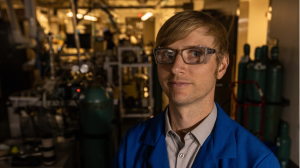
July 30, 2025
Shining UV light on the future of computer chips
A recent study from the University of Missouri could help scientists and engineers build faster, cheaper and more eco-friendly electronics.
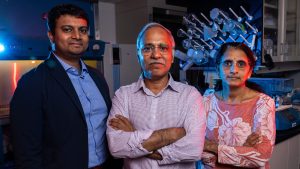
July 8, 2025
Study: Why some lung cancer treatments stop working — and possible fixes
University of Missouri scientists discover a hidden "molecular seesaw" behind drug resistance in certain types of lung cancer, offering hope for more effective therapies.
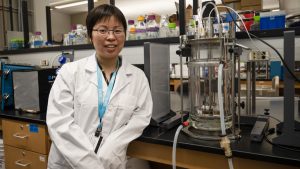
July 1, 2025
Inspired by nature, researcher targets forever chemicals
Mizzou Engineering Professor Susie Dai is pioneering a scalable solution to clean up harmful PFAS without rare or expensive chemicals.